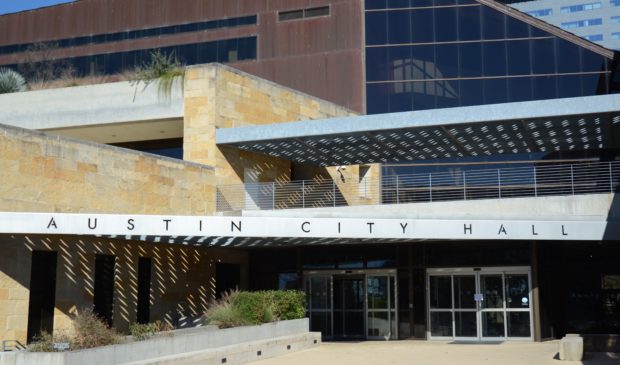Ethics Review Commission weighs in on potential charter changes
Tuesday, June 19, 2018 by
Jessi Devenyns In the midst of discussions about soccer stadiums, CodeNEXT and the 2018 bond, the Charter Review Commission is asking citizens to consider one more thing: changes to the city charter.
At its June 13 meeting, members of the Ethics Review Commission tweaked the proposed charter change language and recommended that City Council consider implementing their recommendations, even as it simultaneously weighs whether or not to put these charter changes on the ballot at all.
“This does not necessarily have the legs to make the distance,” said Chair Ben Stratmann.
Commissioner Brian Thompson agreed, saying that after watching the reactions of Council members at their work session when this topic was presented, “I don’t know if it’s going to get on the (Council) agenda.”
Despite the uncertainty of whether the charter changes will make it to the public for a vote, Stratmann urged commissioners to make their concerns clear to their respective Council members beyond just sending along a recommendation. He has already written a letter to his own.
Among the commissioners, especially those who were on the working group to tackle this issue, the biggest points of concern were the addition of the Democracy Dollars Program and the creation of an “independent” ethics commission.
The Democracy Dollars Program is an initiative that would provide eligible Austin residents up to four $25 Democracy Dollar vouchers per election cycle to distribute among local candidates in hopes of ensuring that all people of Austin have equal opportunity to participate in political campaigns.
Although the Ethics Review Commission was careful to say that it was neither for nor against any of the proposed changes to the city charter, commissioners did express hesitation in the manner in which these changes would be presented to voters on the ballot.
“I can’t think of a person who would vote against that,” said Stratmann in reference to the creation of an independent ethics commission. However, he said, there will be unintended consequences. “Essentially this existing commission is swept out because the average voter has no idea that we exist,” he explained.
In an independent ethics commission, Council members would not appoint commissioners. One rationalization for why this is necessary is that if the Democracy Dollars Program takes effect, commissioners might stand to gain those dollars, which could create a conflict of interest. Similarly, in an effort to separate politics from ethics, members of the independent ethics commission would be barred from participating in politics for their five-year term as well as for two years after. However, Thompson had doubts about the restrictions. “You’re essentially trying to find this zombie person,” he said. “I don’t think it’s workable.”
Furthermore, Thompson and commissioners Debra Danburg and Donna Beth McCormick disagreed that a new commission was needed at all. “I think there has been some effort … to concoct some reason why we need an independent ethics commission. And I think those ring hollow,” said Thompson.
Even with the potential conflict of interest associated with the Democracy Dollars Program, commissioners continued to assert that a new commission was unnecessary. “I think the two have been ill-fated in their inextricable linking together,” said Stratmann. He noted that even though he had been appointed, “I have not spoken to my Council member in three years except for a clerical question.” He also pointed out that an old member of the commission voted against his own Council member, twice.
Independent commission aside, the Democracy Dollars Program is not yet ripe for the picking. “I just think this is a baby, this thing, this idea,” said Thompson. He noted that the program asks for a $1.5 million annual expenditure, but that the source of that funding has not been identified. There were whispers about using the community outreach fund, but “What I don’t hear (is) … has anyone talked to who is in charge of that fund?” he said.
“They just didn’t make a compelling case,” noted Commissioner Peter Einhorn. “I want to want this, but I don’t.”
Photo by John Flynn.
The Austin Monitor’s work is made possible by donations from the community. Though our reporting covers donors from time to time, we are careful to keep business and editorial efforts separate while maintaining transparency. A complete list of donors is available here, and our code of ethics is explained here.
You're a community leader
And we’re honored you look to us for serious, in-depth news. You know a strong community needs local and dedicated watchdog reporting. We’re here for you and that won’t change. Now will you take the powerful next step and support our nonprofit news organization?









